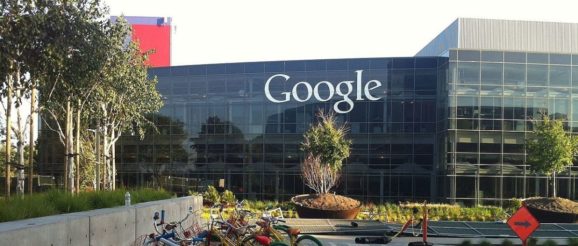Google Is Posing A Serious Threat To Innovation – Issues & Insights

For years, Google has functioned as the world’s digital commons — a place where users aggregate, store, and search for publicly-available knowledge. It’s served as a hub for internet activity and a portal through which people can access the collective understanding of mankind.
Without a doubt, Google takes its role in society quite seriously. From its longstanding effort to digitize libraries to its most recent attempt to collect and log medical records, Google has worked tirelessly to create a “common feast” of information that anyone can access.
But increasingly, Google’s open-source approach to information sharing is creating far more problems than solutions. And nowhere is this fact more clearly illustrated than within the intellectual property (IP) sphere. Google’s notably lax approach to IP has thrown the entire copyright industry into chaos. Moreover, it has resulted in perhaps the most influential IP lawsuit in decades: Google v. Oracle.
Granted review by the nation’s highest court, the Supreme Court is currently being flooded by a wave of Amicus Briefs on the issue. But individual and corporate interests aside, the upcoming Supreme Court case reflects an unfortunate truth about Google’s approach to intellectual property. Rather than contribute to the greater good, the company’s “common feast” position on IP is leaving innovators to starve.
The case revolves around a years-old incident that occurred between Oracle — the owner of Java, a programming language and computing platform first released by Sun Microsystems in 1995 — and Google. Instead of purchasing a licensing agreement from Oracle to use the Java software, Google chose to copy a substantial portion of the program’s code to use within its own mobile phone software, Android. Then, as Google is wont to do, the company made the operating system open source, allowing phone carriers and app developers to utilize the operating system without cost.
The only problem: that intellectual property wasn’t theirs to give away. Oracle stated as much when it sued Google for copyright infringement. But, in its January 2020 brief to the Supreme Court, Google disagreed. It argued that its replication of the code constituted “fair use,” an argument that had been previously rejected by both the Trump administration and the lower courts. But Google wasn’t deterred. Instead, it has continued to argue that its “reuse” of the Java code, and the subsequent creation of Android, benefitted the greater good—and that, in effect, justifies the code’s replication.
According to Google, the search engine company was once again adding to the “common feast” of public information — and their replication of Oracle’s copyrighted code merely contributed to that process. That perspective, however, illustrates precisely why Google’s approach to IP is so dangerously misguided.
In short, Google’s “common feast” position is incompatible with intellectual property rights. Much like the tragedy of the commons thought experiment, the “common feast” approach to IP would rob any incentive for innovators to produce. As a result of Google’s perspective, software code that could benefit the public domain could lose its intellectual property protections. But those protections are the very reason innovation occurs in the first place. Without security against IP theft, progression would slow to a halt, and ironically, the public would suffer as a result.
The potential impact is not confined to software alone, either. The expansion of the fair use doctrine that Google seeks threatens any creative content, including advertising material, customer reviews, product descriptions, photographs, destination guides, and more. Other businesses may benefit from sharing and placement of their content on a variety of online platforms, but as the content owners, they should not have to give up control of whether, when, and how they allow their content to be used.
Ultimately, Google’s approach to IP is antithetical toward the spirit of innovation. It would strip away not only the legal protections afforded to one’s labors, but also the very rationale to labor in the first place. Indeed, Google’s argument in Google v. Oracle is a dangerous proposition that must be rejected. The company may pride itself in its role in the digital commons, but its “common feast” perspective would certainly not benefit the greater good.
Frank V. Vernuccio, Jr., J.D., is the president of the American Analysis of News & Media, Inc., and the editor-in-chief of its major publication, the New York Analysis of Policy and Government.
Note to Readers: Issues & Insights is a new site launched by the seasoned journalists behind the legendary IBD Editorials page. Our mission is to use our decades of experience to provide timely, fact-based reporting and deeply informed analysis on the news of the day.
We’re doing this on a voluntary basis because we think our approach to commentary is sorely lacking both in today’s mainstream media and on the internet. If you like what you see, feel free to click the Tip Jar over on the right sidebar. And be sure to tell your friends!
